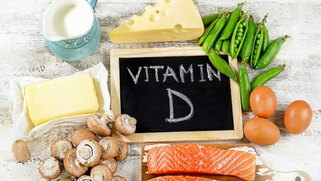
There has recently been a recall for dog foods containing high levels of vitamin D. These potentially toxic levels can cause a variety of organ, nerve, muscle, and skeletal problems. Vitamin D’s main effect is to increase calcium absorption from the gut and kidneys. It also acts in concert with hormones from the parathyroid gland to start pulling calcium from the bones. Think of those as the two keys to a lock that have to be turned simultaneously in order to work. All of this calcium that gets pulled then goes into the bloodstream and gets distributed to muscles, nerves, and major organs in the body. This can easily lead to muscle and bone diseases. If you think your pet food might be affected by the recall, here’s what you can do:
Vitamin D toxicity can affect all animals. This recall primarily affects dog foods, but we want to take the time to remind you to check on your cat, farm animal, or reptile’s diets. Food is the best preventative measure for health. In cases like vitamin D, it is important to make sure you are able to supply your pet with the right amount and form. Be sure to take into account environmental factors that affect vitamin D intake. VCA hospitals: https://vcahospitals.com/know-your-pet/vitamin-d-poisoning-in-dogs FDA fast facts, list of brands: https://www.fda.gov/animalveterinary/newsevents/ucm627485.htm Vitamin D levels for a 500kg working horse: https://aaep.org/sites/default/files/issues/proceedings-11proceedings-z91001113120p.pdf Reptile supplements: http://www.reptilesmagazine.com/Supplemental-Nutrition-for-Your-Reptiles/ Authored by Nick LinznerNicholas Linzner grew up in Northridge, CA and has always cared deeply for animals and their interactions with the environment. He moved to San Luis Obispo, CA to complete a B.S. in Animal Science, with a minor in Equine Science in 2018. Shortly before graduating, he joined the team at RAHU in order to learn more about integrative veterinary medicine and contribute towards the growth of the company. 
1 Comment
I like to take care of my health, both physical and mental. To avoid deficiencies, I had to adopt a balanced diet and above all use a specific food supplement. It is on this article that I found the product that allowed me to relive and enjoy optimal well-being without health concerns.
Reply
Leave a Reply. |
AuthorWrite something about yourself. No need to be fancy, just an overview. Archives
July 2019
Categories |
|
© COPYRIGHT 2017. ALL RIGHTS RESERVED.
Terms of Use & Privacy Policy | [email protected] 4130 N. Rockwell • Chicago, IL 60613 |
